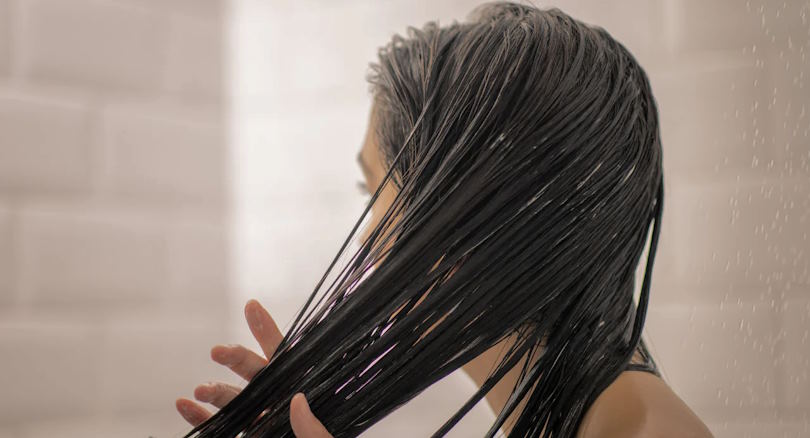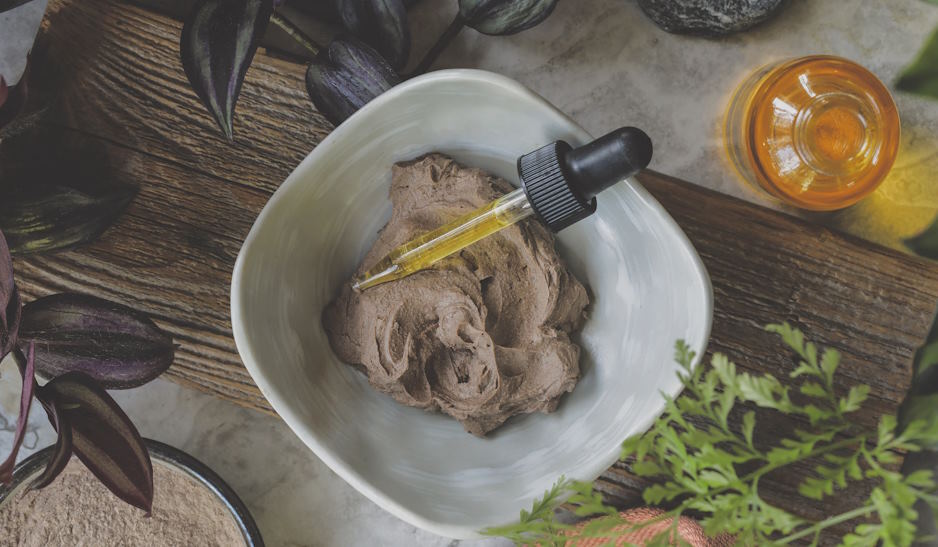The demanding life of a student, juggling classes, exams, and the pressure to excel, often takes a toll not just on academic performance but also on personal well-being. One often overlooked aspect is the impact of this stress on hair health. Stressed-out students may find themselves dealing with a range of hair issues, from dullness and breakage to increased hair fall. In the midst of this chaos, practicing self-care becomes crucial.
DIY Hair Detox Recipes
Clarifying Apple Cider Vinegar Rinse
Benefits of Apple Cider Vinegar for Hair:
Apple cider vinegar (ACV) is a versatile elixir that extends its benefits to hair health. Known for its acidic nature, ACV helps balance the scalp’s pH levels, promoting a healthier environment for hair growth. It also acts as a natural clarifier, removing product buildup and residue, leaving your hair shinier and more manageable.
Step-by-Step Guide:
- Mix 1 part apple cider vinegar with 2 parts water.
- After shampooing, apply the mixture to your hair, focusing on the scalp.
- Massage gently for a few minutes to ensure even distribution.
- Leave it on for 5-10 minutes, then rinse thoroughly.
- Follow with conditioner if needed.
Soothing Aloe Vera and Coconut Oil Mask
Aloe Vera and Coconut Oil Properties for Hair Health:
Aloe vera’s hydrating properties combine with coconut oil’s nourishing qualities to create a powerful duo for distressed hair. Aloe vera soothes the scalp, reducing irritation, while coconut oil penetrates hair strands, providing deep conditioning and preventing breakage.
Recipe:
- Mix 2 tablespoons of aloe vera gel with 1 tablespoon of melted coconut oil.
- Apply the mixture to damp hair, covering from roots to ends.
- Leave it on for 20-30 minutes.
- Rinse thoroughly and shampoo as usual.
Green Tea Scalp Scrub
Antioxidant Properties of Green Tea for the Scalp:
Green tea, rich in antioxidants, helps combat free radicals, promoting a healthier scalp. Its anti-inflammatory properties can soothe irritation and potentially stimulate hair growth.
Instructions:
- Brew a strong cup of green tea and let it cool.
- Mix the tea with 2 tablespoons of coarse sugar to create a scrub.
- Gently massage the scrub into your scalp, focusing on areas with product buildup.
- Rinse thoroughly and follow with shampoo.
Relaxing Lavender and Epsom Salt Bath
Lavender’s Calming Effects on the Mind and Body:
Lavender’s soothing scent has stress-relieving properties, making it an ideal addition to a hair detox routine. Paired with Epsom salt, this bath soak not only detoxifies the scalp but also promotes relaxation.
Incorporating Epsom Salt for Detoxification:
- Add 1 cup of Epsom salt and a few drops of lavender essential oil to a warm bath.
- Soak for 15-20 minutes, allowing the salt to draw out impurities.
- Gently rinse hair with water after soaking.
These DIY hair detox recipes offer a rejuvenating escape, promoting not just vibrant hair but a sense of well-being amid the challenges of student life.
Tips for Effective Hair Detox
Consistency and Frequency of Hair Detox Treatments:
Consistency is key when it comes to effective hair detoxification. Consider incorporating a detox treatment into your routine once a week or as needed, depending on your hair’s condition. Regularity ensures that your hair and scalp receive the ongoing care needed to combat the effects of stress and environmental factors. However, be mindful not to overdo it – balance is essential to prevent potential damage.
Choosing the Right Ingredients for Individual Hair Types:
Not all hair is created equal, and the same goes for hair detox ingredients. Tailor your DIY treatments to your specific hair type. For example, those with dry hair may benefit from moisturizing ingredients like avocado or olive oil, while individuals with oily hair might find citrus-based solutions more suitable. Understanding your hair’s unique needs allows you to select ingredients that address specific issues, providing a more personalized and effective detox experience.
Additional Lifestyle Changes for Overall Stress Reduction:
While DIY hair detox treatments contribute to healthier locks, it’s crucial to address stress from a holistic standpoint. Integrate stress-reducing practices into your daily life, such as exercise, meditation, or mindfulness. A well-balanced lifestyle not only benefits your mental well-being but also reflects positively on the health of your hair. Adequate sleep, a balanced diet, and hydration play integral roles in supporting overall hair health, ensuring that your efforts toward hair detoxification are part of a comprehensive well-being strategy.










